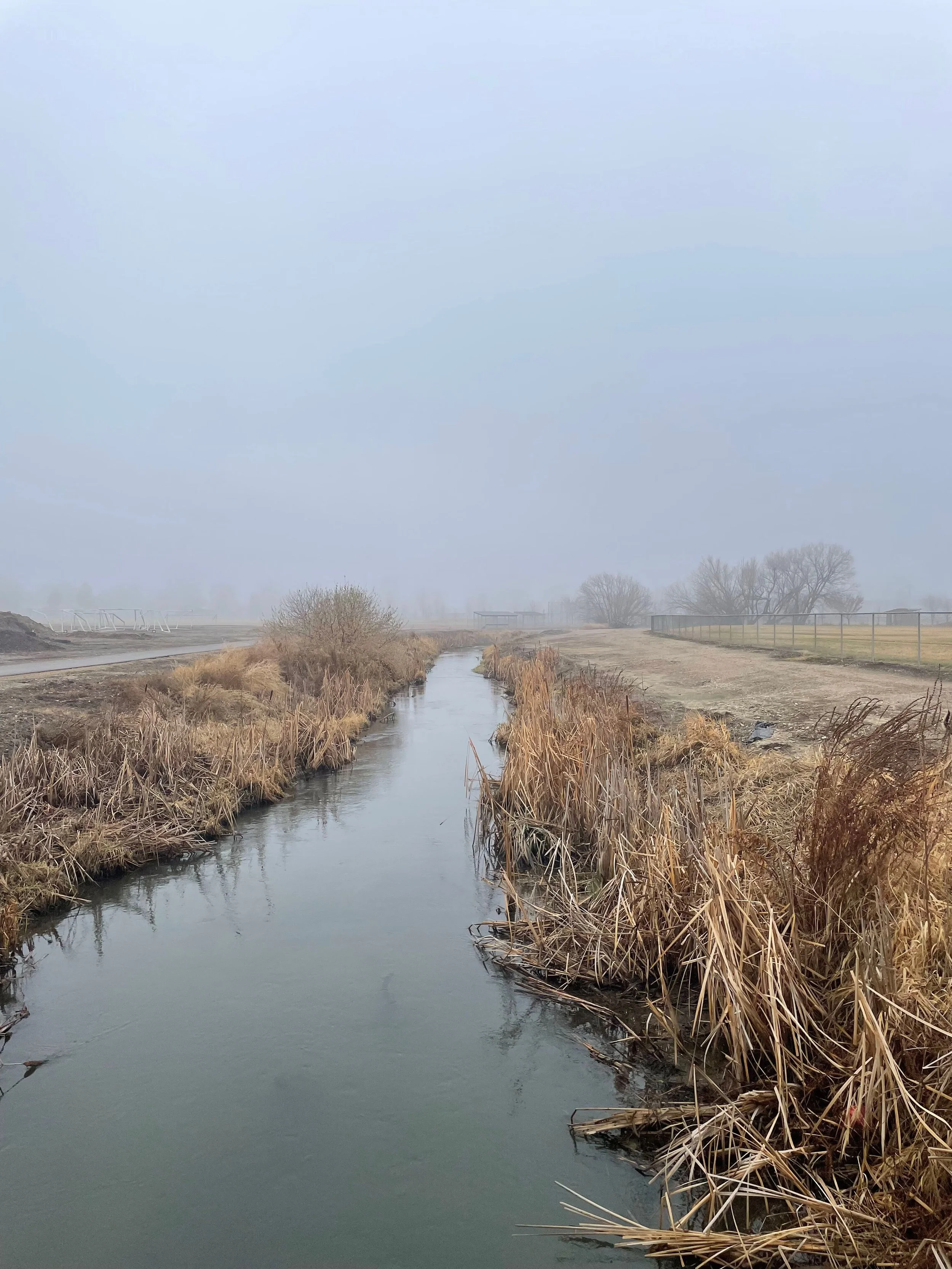Twin Falls, Idaho (1994) — "You never know what you're going to find," said ditchrider Kay Pushel, holding up a snake. The creature wriggled and writhed in her hands, or so it seemed.
Made of plastic, the life-like snake was extracted from one of the hundreds of screens she checks each day on her route along the coulees and laterals of the Twin Falls Canal Co.'s irrigation system. Usually she removes brush, tree limbs and algae from the screens, but she's also found dead animals, bundles of newspapers, footballs, wash buckets and bags of garbage. One day she found a woman's purse.
"I found her driver's license inside and took it to her," Pushel recalled. "She was elderly and confined to a wheelchair. She figured her former housekeeper, who she had to let go, was involved in taking her purse."
Returning lost items is not an everyday part of the job of a ditchrider, but getting along with folks certainly is, and Pushel has been effective in her three years with the canal company.
"The main thing we look for in our ditchriders is p.r.," said her supervisor, watermaster Stan Haye. "They have to deal with the public quite a bit. Kay is one of the best ditchriders we have. She's got one of the hardest rides because not only does she have to deliver water to farmers outside the city limits, but also to people in town."
Close to 300 farmers and their crops depend on the water supply that Pushel manages for eight to nine months each year. She is the one who brings in the water each spring, shuts it off in the fall and keeps it flowing to water users in their prescribed amounts all the days in between.
Much of the job is the mundane cleaning of screens, a task that can require long hours in the spring when the first flush of water carries winter debris down the channels. A clogged screen can be a ditchrider's worst nightmare, sending torrents of water over ditchbanks and onto roads, fields, lawns and parking lots.
"The main part of the job is getting water to the shareholders and keeping it going through your laterals with no problems," Pushel said.
Measuring and setting gates to fractions of a miner's inch is an art that can be mastered only with on-the-job practice. Pushel has learned how to vary the water pressure through her headgates by adjusting the back gates adjoining the laterals. The right amount of pressure will push water through the gates rather than allowing it to pool.
"This year I feel I know a lot more about what I'm doing than I have in the past," Pushel said. "The first year that I brought the water in was a real experience. I had to bring it in just a little at a time and kind of do-and-learn."
The ditchrider's job also involves transferring water from one gate to another. Calls for water deliveries come in on Pushel's home phone from 7 a.m. to 7:30 a.m. Monday through Saturday and she usually responds to them the same day, although the canal company asks for 48 hours notice.
Emergency calls or complaints come at all hours, but usually in the spring when water levels are highest. The most common complaint is from people in town whose neighbors are over-watering.
"A lot of times they will just turn it loose on the weekends," Haye pointed out. "But Kay's got that turned around. They don't turn it loose like they used to. We worked together to shut their water off completely."
"That stops a lot of that," Pushel said.
Drought years are difficult for ditchriders as well as farmers. Water supplies were adequate for the Twin Falls Canal Co. this year, but in 1992 shareholders had to irrigate on alternating weeks.
"That was really tough," Pushel recalled. "We had to rearrange all our checks and move them up higher."
Prior to working as a ditchrider, Pushel spent a dozen years filleting fish at Magic Valley fish hatchery. When a friend who is a ditchrider for another canal company heard about the opening in Twin Falls she told Pushel and she applied.
"They took a chance on me, and I'm glad they did," she said.
A good job for a person who enjoys working outdoors and seeing a lot of country, ditchriding can require a lot of physical labor and long hours. Once summer arrives and water is flowing smoothly, the work is less stressful and more routine.
"I love the hot weather," Pushel said of this summer's heat wave, which brought above average temperatures and virtually no rain to the Twin Falls area for the month of July.
"There comes a time when I get to wishing that winter would get here, but I'm not there yet."
